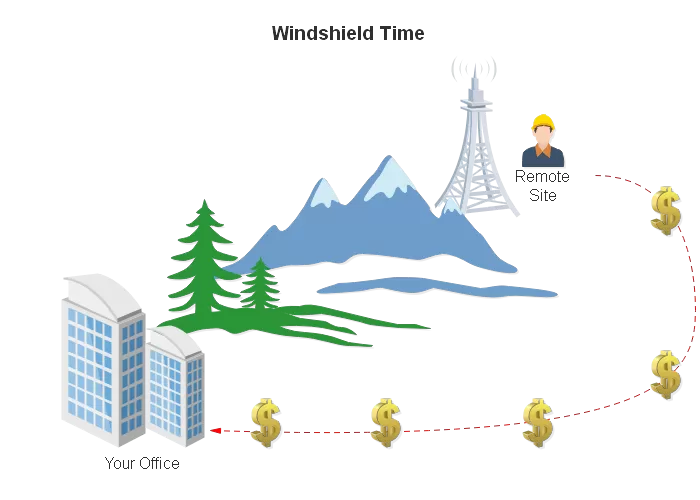Check out our White Paper Series!
A complete library of helpful advice and survival guides for every aspect of system monitoring and control.
1-800-693-0351
Have a specific question? Ask our team of expert engineers and get a specific answer!
Sign up for the next DPS Factory Training!

Whether you're new to our equipment or you've used it for years, DPS factory training is the best way to get more from your monitoring.
Reserve Your Seat TodayThe Internet of Things (IoT) is a network of physical devices that are connected to the Internet. IoT allows a multitude of devices and sensors to be wirelessly connected, which is great for things like smart home capabilities, but also increases access to remotely located monitoring solutions.
IoT remote monitoring allows you to be informed about the statuses and data output from all your devices in real time. It allows you to access data from your computer or smart phone, without having to check and control each system physically and individually.
IoT enables easy access to remote monitoring and management tools for many purposes, including personal use of home utilities and services, home and higher level security, monitoring of equipment and conditions, and more.
"Security" can include home security cameras and doorbells, but also large-scale remote device security management. IoT sensors can detect glass break and tampering, and Remote Telemetry Units (RTUs) can manage secure and varying login information on a large scale.
Wi-Fi, streaming, television, and telephone functions are increasingly interconnected and remotely monitored. Indoor air temperature, home security, and even kitchen appliances can be controlled remotely.
Environmentals include data like temperature, humidity, air flow, floor water, wind speed, air quality, ventilation, air conditioning, and other factors.
Many devices will self-report alarms via contact closure or via protocols like Modbus. You can also connect external sensors if a device doesn't have built-in sensing. Equipment alarms can include almost anything: power usage, high radio noise, card failures, redundant power supply failures... Equipment alarms vary greatly depending on the type of device you're monitoring.
Some "environmental sensors" can actually be considered equipment alarms, depending on context. Pressure, internal and external temperatures, fire detection, vibration. These involve the operation and safety of your equipment (ex. a generator has many of the above values) can be remotely monitored using IoT products.
Finally, network alarms are a subset of equipment alarms that involves your network infrastructure. Trouble alarms from switches, media converters, and similar gear would fall under the heading of "network alarms."
Effective remote monitoring and management tools can solve a lot of problems.

An effective IoT remote monitoring system can eliminate the need for regular truck rolls to your monitoring sites.
With IoT remote monitoring, your IoT sensors will be automatically collecting data and relaying it to your systems. This eliminates the cost of on-site monitoring, travel expenses, and man hours. IoT is ideal for cost-effectively monitoring your sites. Another benefit of this is decreasing your carbon footprint - which your PR department is bound to love.
With remote monitoring, you can monitor and track real-time data from your sites. You can use wireless monitoring software to see trends in changes from your analog sensors. IoT remote monitoring allows you to get comprehensive real-time data from all your IoT sensors, enabling predictive maintenance for all your systems.
This way you can identify and solve problems before they even occur. That keeps your customers happy, saves you money repairing damaged equipment, and keeps your sites running smoothly.
For example, you may run a site that depends on batteries as a primary or back-up power source. Such a site is probably infrequently visited for testing, and may be inconvenient to access due to its location or weather conditions. IoT devices such as a D-Wire sensor could be used to remotely monitor the voltage and output of your batteries, so that you can predict when a battery will need to be replaced.
That way, you can take care of it before your site goes down and you get complaints that your customers are experiencing an outage. A voltage sensor could be used alongside a floor water level sensor, temperature and humidity sensor, A/C fail sensor, or whatever else you may need for a comprehensive IoT remote monitoring system for your site.
Find more details about the benefits of IoT in another one of our articles.
If your sensors, alarm masters, RTUs, etc. are not up-to-date, they may not work as well as they should. Worse, they could be incompatible with other devices in the Internet of Things. In this case it will be difficult, if not impossible, to run an effective remote monitoring system.
There are plenty of consumer-or-hobby-grade IoT devices on the market, which are great for things like smart home and home security. These are useful for daily home life, but if you're monitoring for business purposes, these products are not ideal. They don't have the capabilities or reliability to serve your business.
You may run across the problem that many of the companies that offer business grade IoT equipment require recurring monthly subscription fees. No one wants to be stuck in a commitment with subscription costs racking up each month.
You may have success coming up with your own setup of connected devices and coding tricks to meet your specific remote monitoring needs. But self-rigged systems can be difficult to replicate and maintain on a large and long-term scale. In addition, things like tech support, user manuals and troubleshooting guides, and the ability to implement your IoT devices on a broad scale are not available to you with homemade IoT solutions.
As a business, you have a responsibility to operate durable, dependable IoT remote monitoring systems. You need business-specific IoT equipment with the dependability of an established provider, and the capacity to easily replicate IoT systems at all of your sites.
You want a streamlined and efficient system that implements remote monitoring. You need up-to-date equipment with compatibility that allows you to have all your data in one place. You want to reduce maintenance costs and energy consumption by conducting your monitoring remotely.
The best solution is to go to a provider with expertise in building custom remote monitoring systems. You will get the customized build of a homemade solution with the quality, consistency, reliability, longevity and replicability of a tried and true product. In addition to saving you the trouble of rigging your own system, a trusted provider will provide your company with user manuals, troubleshooting guides, and installation services.
With over 35 years of experience and expertise in network alarm monitoring, DPS can help meet your IoT solution needs with dependable, high quality IoT systems for your business. With our team of engineers and in-house manufacturing, we can work with you to create a custom monitoring system that serves the success of your business. We also offer installation, 24/7 tech support, and a 30-day money-back guarantee for all our clients, with no recurring fees.
All these obstacles can cause frustration and be detrimental to the success of your business.
Give DPS a call at 1-800-693-0351 or send us a message and we will listen to your needs and concerns and create a custom remote monitoring system that works for you.

Andrew Erickson
Andrew Erickson is an Application Engineer at DPS Telecom, a manufacturer of semi-custom remote alarm monitoring systems based in Fresno, California. Andrew brings more than 19 years of experience building site monitoring solutions, developing intuitive user interfaces and documentation, and opt...